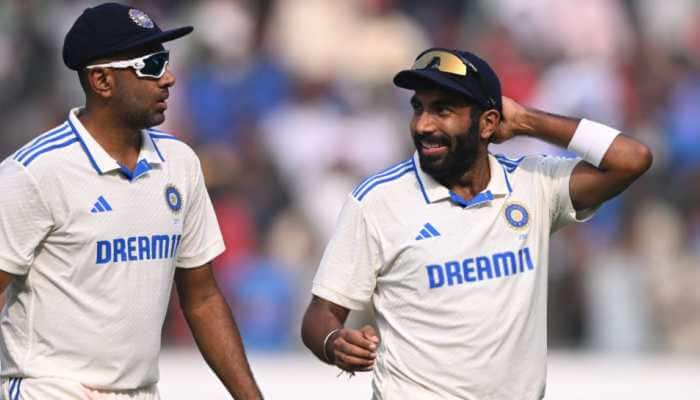Education reforms: A forced necessity
Kapil Sibal`s idea of restructuring India`s education system has received a mixed response.
Trending Photos
)
 Sharique N Siddiquie
When Kapil Sibal announced his idea of restructuring the entire education system, it was met with a mixed response. Some believed it was good to reduce the stress level of students while others had their own reservations over the issue.The changes that he proposed were making Class X board optional, marking system to be replaced by grading system and free education up to Class XII apart from regularizing Madarssa education. These are revolutionary changes and can set up the agenda for the future of education in India.
Before moving on to discuss the pros and cons of the proposed reforms, what needs to be understood are the reasons that make it necessary to introduce reforms in education sector.
The first cause of concern is the implementation of quota system. Since the introduction of 22.5 percent reservation for OBC students in higher education, it becomes necessary to strengthen education at primary level.
It has become a norm even in premier educational institutions like IITs, IIMs and Delhi University to fill up reserved seats with general category candidates in absence of claimants. So, educational reforms at primary level are mandatory to educate backward caste students and prepare them for higher education.
The second reason for implementing certain educational reforms is the rising stress level among students. Every year after board exams, we hear about students committing suicides depressed over poor performances or even in anticipation of such results.
At the age of 14-15 years, when a student appears for Class X board exams, he/she is not ready to face the stress that comes with the pressure of performing. So, when they fail to live up to the expectation of their parents and teachers, they tend to take the extreme step.
The third and last reason is the rising cut-offs marks in various courses. This time in Delhi University admission, it has become apparent that even 90 percent marks do not guarantee you a seat in your favourite college and in your favourite course.
This has put students under tremendous pressure to perform outstandingly. A student securing anything even in the range of 80 percent feels left out and that makes the situation really terrifying.
Now, let’s talk about the proposed educational reforms and their impact on the educational system of India.Free education up to Class 12
This is indeed a very good move. This will help in educating the most downtrodden of the society. This will also help in creating awareness among the poor students about the opportunities that exist after completion of higher secondary level of education.
The only hitch in the implementation of this scheme is that it will put a lot of burden on government’s treasury. So, it remains to be seen whether the state government or the Central government will bear the expenses.
Government will also have to decide whether education at higher secondary level will be come under state boards or a single CBSE format.
A clear cut policy in consensus with the Central and state governments is required for the implementation of this highly ambitious scheme.Optional Class X board
This is a very controversial reform that would need a whole lot of discussion before implementation. There are two contradicting views about it.
The first one says that making Class X board exam optional will create confusion among the students. The students choose their stream of studies after Class X board. On the basis of their result, they decide what are their core areas of interests and what should they pursue in future.
Making Class X board optional would confuse students. Also, it would make things complicated at +2 level, when the difficulty level of studies changes dramatically. So, Class X board should not be done away with. Moreover, Class X exam also placates the Board exam phobia that students will face, if they were to take the Boards for the first time in Class XII.
On the other hand, advocates of optional Class X board suggest that this move will help reduce the undue pressure on the young shoulders. It will help in bringing down the incidents of students committing suicide over poor performances in exams at Class X level.
They say that students can very well make the choice of stream they want to pursue without appearing for a board exam.
The whole process is going to be very complicated. The set pattern of education system in India will undergo a radical change and some very innovative ideas are bound to come up.Grades to replace marks
This is going to be another controversy churning idea. Government is contemplating this idea for a long time but implementing it will have its own complications.
First, it will generalise the students’ performance which would be unfair to the good students. Secondly, the process of admission will become all the more complicated as grades will put a lot of students in the same category.
The eligibility for entrance exam would also be difficult to ascertain as you will never know by what percentage a student missed the opportunity or made the cut.
But there are a lot of advantages also. First, the stress level of the students will come down as the mad rush for marks will not be there. Also, a student will not get disheartened over a few percent points.
Other reforms proposed by Kapil Sibal like regularizing Madarssa education will also face a lot of opposition. It remains to be seen how he tackles this opposition.
Our education system is heading towards reforms and it remains to be seen that these reforms bring about a positive change in the system. The State-Centre coordination is also a must to bring about these changes, but the road ahead will not be that easy.
Sharique N Siddiquie
When Kapil Sibal announced his idea of restructuring the entire education system, it was met with a mixed response. Some believed it was good to reduce the stress level of students while others had their own reservations over the issue.The changes that he proposed were making Class X board optional, marking system to be replaced by grading system and free education up to Class XII apart from regularizing Madarssa education. These are revolutionary changes and can set up the agenda for the future of education in India.
Before moving on to discuss the pros and cons of the proposed reforms, what needs to be understood are the reasons that make it necessary to introduce reforms in education sector.
The first cause of concern is the implementation of quota system. Since the introduction of 22.5 percent reservation for OBC students in higher education, it becomes necessary to strengthen education at primary level.
It has become a norm even in premier educational institutions like IITs, IIMs and Delhi University to fill up reserved seats with general category candidates in absence of claimants. So, educational reforms at primary level are mandatory to educate backward caste students and prepare them for higher education.
The second reason for implementing certain educational reforms is the rising stress level among students. Every year after board exams, we hear about students committing suicides depressed over poor performances or even in anticipation of such results.
At the age of 14-15 years, when a student appears for Class X board exams, he/she is not ready to face the stress that comes with the pressure of performing. So, when they fail to live up to the expectation of their parents and teachers, they tend to take the extreme step.
The third and last reason is the rising cut-offs marks in various courses. This time in Delhi University admission, it has become apparent that even 90 percent marks do not guarantee you a seat in your favourite college and in your favourite course.
This has put students under tremendous pressure to perform outstandingly. A student securing anything even in the range of 80 percent feels left out and that makes the situation really terrifying.
Now, let’s talk about the proposed educational reforms and their impact on the educational system of India.Free education up to Class 12
This is indeed a very good move. This will help in educating the most downtrodden of the society. This will also help in creating awareness among the poor students about the opportunities that exist after completion of higher secondary level of education.
The only hitch in the implementation of this scheme is that it will put a lot of burden on government’s treasury. So, it remains to be seen whether the state government or the Central government will bear the expenses.
Government will also have to decide whether education at higher secondary level will be come under state boards or a single CBSE format.
A clear cut policy in consensus with the Central and state governments is required for the implementation of this highly ambitious scheme.Optional Class X board
This is a very controversial reform that would need a whole lot of discussion before implementation. There are two contradicting views about it.
The first one says that making Class X board exam optional will create confusion among the students. The students choose their stream of studies after Class X board. On the basis of their result, they decide what are their core areas of interests and what should they pursue in future.
Making Class X board optional would confuse students. Also, it would make things complicated at +2 level, when the difficulty level of studies changes dramatically. So, Class X board should not be done away with. Moreover, Class X exam also placates the Board exam phobia that students will face, if they were to take the Boards for the first time in Class XII.
On the other hand, advocates of optional Class X board suggest that this move will help reduce the undue pressure on the young shoulders. It will help in bringing down the incidents of students committing suicide over poor performances in exams at Class X level.
They say that students can very well make the choice of stream they want to pursue without appearing for a board exam.
The whole process is going to be very complicated. The set pattern of education system in India will undergo a radical change and some very innovative ideas are bound to come up.Grades to replace marks
This is going to be another controversy churning idea. Government is contemplating this idea for a long time but implementing it will have its own complications.
First, it will generalise the students’ performance which would be unfair to the good students. Secondly, the process of admission will become all the more complicated as grades will put a lot of students in the same category.
The eligibility for entrance exam would also be difficult to ascertain as you will never know by what percentage a student missed the opportunity or made the cut.
But there are a lot of advantages also. First, the stress level of the students will come down as the mad rush for marks will not be there. Also, a student will not get disheartened over a few percent points.
Other reforms proposed by Kapil Sibal like regularizing Madarssa education will also face a lot of opposition. It remains to be seen how he tackles this opposition.
Our education system is heading towards reforms and it remains to be seen that these reforms bring about a positive change in the system. The State-Centre coordination is also a must to bring about these changes, but the road ahead will not be that easy.Stay informed on all the latest news, real-time breaking news updates, and follow all the important headlines in india news and world News on Zee News.
Advertisement
Live Tv
Advertisement







)
)
)
)
)
)
)
)
)
)
